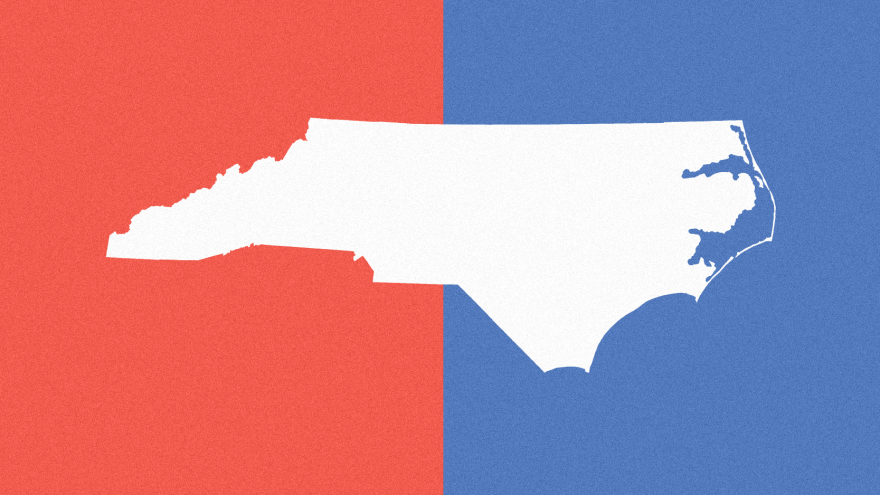North Carolina Republicans in the General Assembly but declared victory in three competitive U.S. House seats. Meanwhile state voters including photo voter ID, but they repudiated the Republican plan to give the legislature more control over judicial and state board appointments.
Democrat Anita Earls won the State Supreme Court race against a Republican incumbent and a GOP challenger. Voter turnout yesterday was the largest in decades for midterm elections, and anti-Trump backlash may have been a huge factor. Turnout was strong enough to flip the U.S. House giving Democrats control.
On this special election edition, host Frank Stasio gets a roundup of results from around with state with ąĎÉńapp Capitol Bureau Chief , ąĎÉńapp Politics reporter , Blue Ridge Public Radio ąĎÉńapp Director , and Port City Daily Managing Editor .
What motivated so many voters to head to the polls? And what does this election mean going forward for North Carolina and the nation? Stasio also talks to , , , and about their takes on the winners and losers of the midterms and what that means going forward.
Haynie is an associate professor of political science and African and African-American studies at Duke University. Roberts is a professor of political science at Davidson College. Rose is an assistant professor of public policy and political science at Duke University and is the author of “”(Oxford University Press/2018). Bitzer is a professor of politics and history at Catawba College.
INTERVIEW HIGHLIGHTS
Rose on the significance of the unprecedented number of women on the ballot:
This election showed us that there are women who are basically tired of being marginalized in U.S. political institutions, and they're really serious about having a seat at the table. And so I think part of this is a response to President Trump who is very unpopular with women, in particular women on the left. I think some of this reflects the #MeToo movement. I think some of it reflects the Kavanaugh hearings in interesting ways … There are women who pushed us to think about who a political candidate is and what a political candidate does.
Haynie the number of female candidates who won:
One of the things that struck me last night watching the women come through these campaigns was that it was a continuation of the women's march that we saw in the immediate aftermath of the 2016 election. And one question was whether that enthusiasm would carry through to now and beyond. And it looked like it has carried through. It looked like it will continue to carry through into 2020.
Bitzer on the bigger questions behind North Carolina’s election results:
I think the bigger question right now that folks will probably start to shift their attention to is what does this year's election mean for the partisan gerrymandering lawsuit that's potentially before the U.S. Supreme Court. Does this give ammunition to Democrats to say: Look, even in this kind of a high energy turnout, we can't get over these walls that the Republicans have built based on partisanship ... You've got some interesting arguments that are going to play out if these Congressional districts get redrawn before 2020. What happens at the state legislative level — that whole dynamic is going to play out in the next two years setting up a very competitive 2020 election.
Roberts on what’s next for the Democratic Party:
One of the things that the Democrats have to think about is who is going to represent the Democrats in 2020 and how does that signal where the party is going to go, because there's really an ideological fissure between some people that want to go to the left — led most visibly by Elizabeth Warren — and some that want to stay the course. And I think that that's going to be the big challenge for the Democratic Party.









